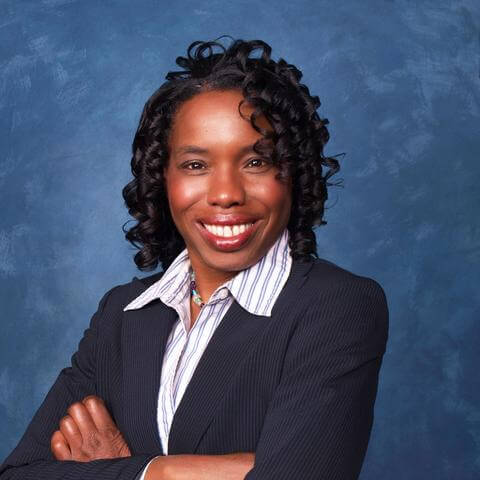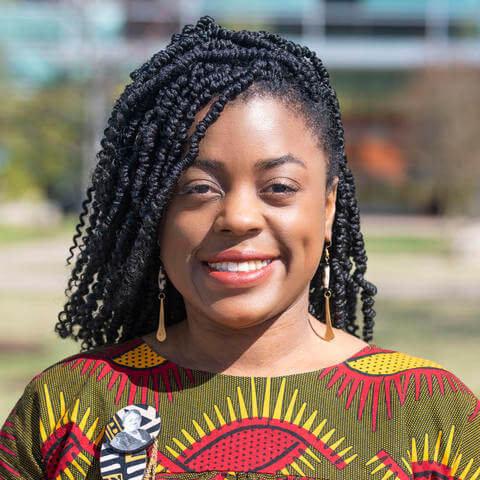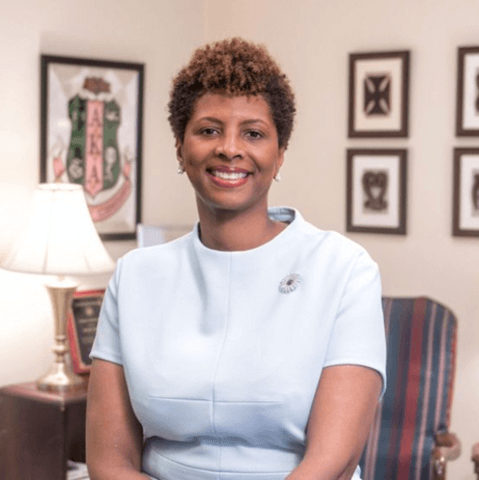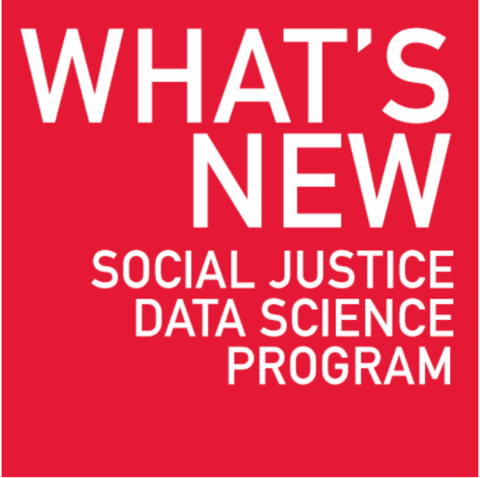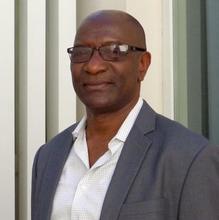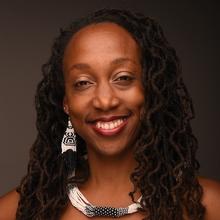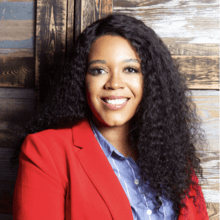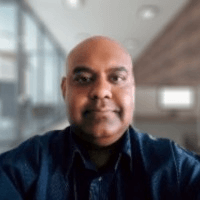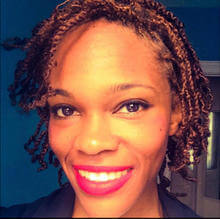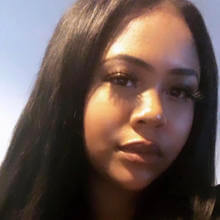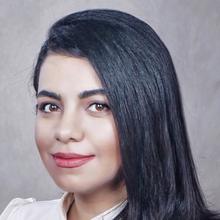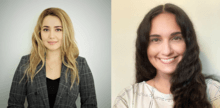The Sway: November 2022
Welcome
The Sway is Howard University Graduate School's news publication. It serves to celebrate and highlight graduate student, alumni, faculty and staff achievements and updates. It is published regularly during the academic year.
- To subscribe follow this link.
- To submit news/updates follow this link.
We also encourage all alumni to join one of our networks on LinkedIn. The Doctoral Alumni Network can be found here, and the Master's Network here. The Graduate School also regularly publishes updates on its social media channels: Instagram, Twitter and Facebook.
Bison Trailblazers: Yvonne Bradley
by Jasmine M. Ellis
History doctoral student and veteran Yvonne Bradley is celebrating the release of the documentary about her work as a military attorney entitled, We Are Not Ghouls. According to the film’s website, “Bradley reflects on her time as a US Air Force JAG Attorney when she volunteered to defend a man named Binyam Mohamed, who was facing a death penalty case at Guantanamo Bay in 2005. Believing the detainees at Guantanamo were “the worst of the worst” in the war on terror, her world was turned upside down as she arrived in Cuba and began to untangle an unimaginable case. Spending the next four years battling to uncover the truth, Bradley has a captivating story of taking responsibility in the face of corruption at the highest levels of power and the dangers of choosing to stand up for what you believe in.”
“I hope that as many people as possible have an opportunity to watch the documentary and become encouraged by it,” says Bradley. “I do believe that the documentary is an important part of American history that needs to be told and understood.”
We Are Not Ghouls premiered at the 2022 SXSW Film Festival and won an Audience Award. Bradley spoke to The Sway about the process of creating the film, and what she hopes people will take away from it. This article has been condensed and edited for clarity.
_______________
The Sway: What was your role in creating this documentary?
Yvonne Bradley: My primary role in creating this documentary was spending time with the filmmaker and answering questions during the interview. I had to explain the case and my concerns about what was happening at Guantanamo Bay and how our government was violating international protocols and the ‘rule of law’ during the military commission hearings.
Also, in creating the documentary, I traveled to a number of locations for filming. One location was New York City, and another London. While I was on vacation in London with my sister, who also appears in the documentary, she and I filmed a couple of shots for the filmmaker. The filmmaker and I also traveled to Delaware to film a few scenes at my church and other locations. Overall, I would say that my major role in creating the documentary was to provide the filmmaker with the necessary information and location shots to tell the story that is featured in the documentary.
TS: What was the process of creating this film?
YB: The process of creating the film was sitting through several days of in-person interviews with the filmmaker and the cameraman. There were also numerous follow-up sessions with questions and answers either through telephone conversations, emails or texts. It took several years for the documentary to be complete; I believe approximately eight or nine years.
TS: Why is this project important to you?
YB: The project is important to me because it reveals to the American public a more accurate account of U.S. government’s actions at Guantanamo Bay and its involvement in rendering and torturing many individuals. It is important that the American public have a better understanding of what their government was doing, and to also understand that when we are told part of the truth rather than the whole truth, that we are being told a distorted truth, if not a lie. Therefore, to me, it is important that as many people as possible hear a fuller account of what was happening during the so-called “War on Terror.” This is especially important and relevant since our government is still, after more than 20+ years and the end of the war on Afghanistan, holding and imprisoning people without trials at Guantanamo Bay.
TS: How will your experience with this project inform your time as a doctoral student studying history at Howard?
YB: One way my experience with this project will inform my time as a doctoral student studying History at Howard is that I am confident that I will learn and appreciate U.S. and public history from a more inclusive perspective. My work on several Guantanamo Bay projects, along with my experience as defense counsel on the case featured in the documentary, has taught me that it is vital to understand facts and history from a wider lens and a broader perspective than what may be taught or communicated by the government, media or in textbooks.
TS: What do you hope that people take away from the documentary?
YB: The most important thing that I hope people take away from the documentary is the lesson that it is vital to stand by your ethical principles and not to be afraid to do so, no matter the obstacles you may face. Speaking truth to power is vital, and especially since, at the end of the day, you always have to look at yourself in the mirror and ask if you lived by your own valued principles or simply followed the questionable standards of the crowd. I hope the documentary gives people the hope and strength to be willing, able, and ready to stand up, and speak up against wrong. Standing up and speaking up in the face of wrong is as important today as it has ever been; therefore, that is what I hope that people take away from the documentary.
Word to the Wise: Dr. Ashley Robertson Preston
By Jasmine M. Ellis
Ashley Robertson Preston, Ph.D., Assistant Professor of History at Howard University, was recently selected to serve on the Council of Advisors for the Women’s Suffrage National Monument Foundation. The purpose of the Women’s Suffrage National Monument Foundation is to establish a national monument in Washington, DC, that will commemorate the women who fought valiantly for the right to vote. It will be unveiled on federal land in the summer of 2027.
“As a Council Advisor, I will offer historical expertise on African American suffragists to aid in the creation of the monument,” Preston says. “My research on Black clubwomen will inform my role as I will offer historical expertise on African American suffragists.”
Preston spoke to The Sway about her decision to work on the project and what she hopes Black women will take away from it. This article has been condensed and edited for clarity.
__________________
The Sway: Why did you decide to get involved in the project?
Ashley Robertson Preston: This project appealed to me because I think that it is important to be at the table to make sure that Black women suffragists are represented. The monument will be seen by future generations of children, and we must get the story correct regarding the diversity of the women who fought for the right to vote.
TS: Why is this project important to you?
AP: Right now, we are witnessing a movement to remove confederate monuments, and we see how they have impacted cities and towns throughout the nation, but the replacement of those figures is important also. What stories do we want to tell now? This project will highlight an important yet largely overlooked part of American history, and I am excited to be involved.
TS: How has your work with students and your academic career at Howard benefited from this experience?
AP: I believe that it is important for students, particularly those engaged in public history, to see their professors actively doing work in the field. I will share these experiences with the course to further strengthen students’ understanding of how to put the training they receive in the classroom into practice.
TS: What advice can you give to others interested in serving on advisory committees in the future?
AP: Go for it! Be sure that the committee's work aligns with your goals and visions before committing.
TS: What impact do you hope this project has on the public, especially Black women?
AP: This project will include Black women in an area of history that has been largely whitewashed, and a major part of my reason for engaging is to correct the narrative. I stand on the shoulders of Rosalyn Terborg-Penn, Ph.D., whose research on Black women’s fight for suffrage started here at Howard University.
Dean's Corner
Gathering Together
One of the things I love about fall is it is the season of gathering. Homecoming was wonderful in all the ways we hoped for. We gathered for the Graduate School’s annual homecoming breakfast for the first time since the COVID-19 pandemic. That gathering allowed us to reconnect with old friends and to make new ones, to watch the parade, to root for the Bison football team. We gathered on the yard to support Black vendors and to make Black joy. For Friendsgiving, many of us gathered with friends and family to express gratitude for each other, in our best effort to reroute “Thanksgiving” as a holiday that inappropriately celebrates the exploitation of our indigenous brothers and sisters. And, as the December holiday season approaches, we will surely gather to spread love and joy and, hopefully, to advocate for peace. I’m excited about all of these gatherings. But there is one gathering in particular that, as Dean of the Graduate School, excites me the most—the master’s and dissertation defenses. While most of our students defend in the Spring semester, there has been an impressive rate of completion this Fall.
Congratulations to these students, to the faculty mentors and committee members, and to their families.
Seraj Aburizaiza | Doctor of Philosophy | Economics
Kokou Afangbedji | Doctor of Philosophy | Physiology
Mohammad Alfayazi | Doctor of Philosophy | Economics
Yousef Alrajhi | Doctor of Philosophy | Microbiology
Debbynie Barsh | Doctor of Philosophy | Pharmaceutical Sciences
Benjamin Bazzi | Doctor of Philosophy | Counseling Psychology
Victoria Brooks | Doctor of Philosophy | Microbiology
Nyanya Browne | Doctor of Philosophy | Economics
Barbra Chin | Doctor of Philosophy | English
Marcus Cooper | Master of Science | Chemistry
Christian Diaz Caez | Doctor of Philosophy | Electrical Engineering & Computer Science
Delan Ellington | Master of Arts | History
Hamid Ghasemi | Doctor of Philosophy | Civil & Environmental Engineering
Ayobami Idubor | Doctor of Philosophy | Electrical Engineering & Computer Science
Esohe Irabor | Doctor of Philosophy | Biology
Christian Mallett | Doctor of Philosophy | Psychology
Trevon Pegram | Doctor of Philosophy | English
Margaret Reed | Doctor of Philosophy | History
Sunitha Safavat | Doctor of Philosophy | Electrical Engineering & Computer Science
Charlezetta Stokes | Doctor of Philosophy | Physics
Sara Swetzoff | Doctor of Philosophy | African Studies & Research
Aaliah Zonicle | Doctor of Philosophy | Social Work
Gather on!
Dana A. Williams, Ph.D., Graduate Dean
What's New
As part of a $5 million donation to Howard University by Mastercard, the Center for Applied Data Science and Analytics (CADSA) was established in 2022. Not only does the Center serve as a hub for social impact research but it houses the new Master’s degree program in applied data science, focused on Social Justice with its first cohort in the Fall of 2023.
“Data science touches everything, and it’s going to continue to be increasingly impactful in everything that we do,” says Dr. Anthony K. Wutoh, Howard University’s Provost and Chief Academic Officer, in a statement. “We’re grateful for the partnership with Mastercard in enabling us to use data science to answer some of the broader societal questions we believe Howard can significantly impact, including those around health care and economic disparities.”
Indeed, according to Master’s Program Director Dr. Amy Yeboah Quarkume, it is time for a data science programs to solve some of the most pressing problems of today. “Technology has the power to revolutionize our world. However, it is up to us to decide whether those changes will help or harm our society. With increased reliance on data to address social problems, we need a new class of data scientists to understand the existing systems, work on redressing them before more data bias gets perpetuated, all the while creating new knowledge in the process,” she says.
Fortunately, Howard’s new program is here to fill this gap. This degree connects the Howard ethos of justice, and excellence in truth and service, with the technical finesse and data science backing needed to understand and work towards technical advances that are equitably shared among all segments of society. Employment projections indicate that between 2020 and 2030 computational related jobs will see an 14% increase in the number of positions. Additionally, data scientists’ occupations are expected to see a 30% increase: with a median salary of $130,000. Thus, Howard’s Master’s program will successfully prepare students for this anticipated need.
With a unique emphasis on Social Justice and the growing importance of understanding data across academic disciplines, this 30-credit program provides students with traditional data science opportunities while also offering specializations in the areas of Minority Health & Health Disparities, Environmental Justice, and Economic Empowerment.
Most importantly, students will also receive career mentoring, opportunities to work on social impact projects, industry and government internships, and the ability to join communities of social justice organizations and institutions working for change.
Yes!
Dr. Jean-Michel Mabeko-Tali, Professor of History at Howard University was awarded the National Award of Culture and Arts by the Angolan Ministry of Culture, and Tourism for his academic research and publications relating to the social and political history of the country. Read more about his award here.
Dr. Mesi Bakari Walton was recently appointed Assistant Professor (tenure-track) of Spanish and Afro Latin Cultures at Howard University’s Department of World Languages & Cultures.
“I am a four-time graduate of Howard University, so Howard is home. I enjoy teaching and conducting research on African culture and Black identity in the Diaspora. I am currently writing about the research I conducted in Colombia as a Fulbright Scholar. I look forward to collaborating with other departments on symposiums, courses, study abroad, and more. I am excited about my new role as Assistant professor and hope to be able to open more doors for students that were opened for me as a student.”
Graduate Students
Social Work doctoral student Latoya S. Hogg recently served as a panelist at the Council on Social Work Education’s Annual Program Meeting in Anaheim, CA. The panel presentation was titled “A Critical Conversation: Examining Non-Traditional and Underserved Student Barriers During Field Education.”
Ms. Hogg’s dissertation and research interests focus on the Black doctoral student experience within HBCU social work doctoral education.
Biology doctoral student Vidhyanand (Vick) Mahase recently presented at the Merck Emerging Talent Technology Symposium on the genetic variations affecting ACE2 protein stability in minority populations, which was based on an October 2022 team paper published in the Frontiers of Medicine.
Mr. Mahase earned his PharmD from Howard’s School of Pharmacy in 2005, and returned to the University to pursue a PhD in biological data analysis. His research focuses on understanding the roles of genetic variants and proteins associated with human diseases. He uses protein structure-based methods to investigate the effects of deleterious mutations, particularly in African/LatinX Americans, associated with SARS-CoV-2 virus binding to the ACE2 receptor in the lungs.
Tiffany Wheatland-Disu, a History doctoral student, recently presented at the 65th Annual Meeting of the African Studies Association (ASA) in Philadelphia, PA.
For the panel organized by Dr. J. Jarpa Dawuni on Women, Intersectional Identity and Representation, Ms. Wheatland-Disu presented a paper entitled, “From Distortion to Reconstruction: The Epistemic Liberation of Africana Women.” She also participated in a roundtable organized by Dr. Jean-Michel Mabeko-Tali on “Natural resources exploitation, social instability, and ecological disaster in Central Africa.”
Ms. Wheatland-Disu’s research specializes in African and African Diaspora history, specifically on postcolonialism, black internationalism and radical politics.
Lauren L. Taylor, a doctoral student in Sociology, presented her research, “Defining My Body for Myself: An Autoethnography,” at the 2022 Association of Black Sociologists Conference in Chicago, IL. She used a reflective narrative to observe how the sexualization of Black women’s bodies affects their gendered racial identity and relationships.
Ms. Taylor (she/her) is also a NOAA Cooperative Science Center in Atmospheric Sciences and Meteorology (NCAS-M) Research Fellow. Her research interests include environmental injustice, social stratification, and the black community.
Sama Ghadiri Gargari, a Civil and Environmental Engineering doctoral student, just published a review paper on her research in The American Oil Chemists’ Society’s Inform Magazine.
Ms. Gargari is also a current Just Julian Graduate Research Assistant. Her doctoral research, funded by the United States Department of Agriculture, focuses on assessing the tribo-electrostatic separation approach to fractionate plant proteins from legumes and cereals sustainably in a water- and chemical-free environment.
Doctoral students, Sanaz Dabiri (left) and Mara Ramirez Ruíz‘s (right) recent research paper was accepted for publication in the Journal of Gerontology: Biological Sciences. Along with five other collaborators and the Alzheimer’s Disease Neuroimaging Initiative the article focused on the role of inflammation in the relationship between a-synuclein and cognitive functioning.
Ms. Dabiri is a 5th-year doctoral student in Neuropsychology with a concentration in statistics. Her research focuses on cognitive decline and Alzheimer’s disease with an emphasis on the biopsychosocial approach. Her goal is to find biomarkers, and social and psychological risk factors that can potentially detect cognitive decline in the early stages of Alzheimer’s disease.
Ms. Ruíz, a 5th-year doctoral student in Clinical Psychology. Her research focuses on addressing the psychosocial determinants of Latinos’ neurocognitive health. As a researcher and clinician, her goal is to promote healthy cognitive aging among ethnic minorities and conduct research that helps inform the prevention of Alzheimer’s disease.
Virtual Employer Forum: Internships at the Edison Electric Institute
with Patrice J. Hunter and Carrie Smith
February 16, 2023 (12:00 – 1:00 P.M. EST) Registration link
Virtual Employer Forum: Boston Consulting Group
with Tiffany Smith and others
February 21, 2023 (12:00 – 1:00 P.M.) Registration link
Calling all graduate alumni
We are looking for speakers for the 2023 Doctoral Career Pathways Conference (March 27 – 31, 2023). There will be three 1-hour sessions each day on topics as follows: academia, federal govt, nonprofits, consulting, start-ups, health careers, communications/marketing, social science research, STEM research, data science, intl issues, policy/advocacy, education, postdoctoral path. Please email annadecheke.qualls@howard.edu.

